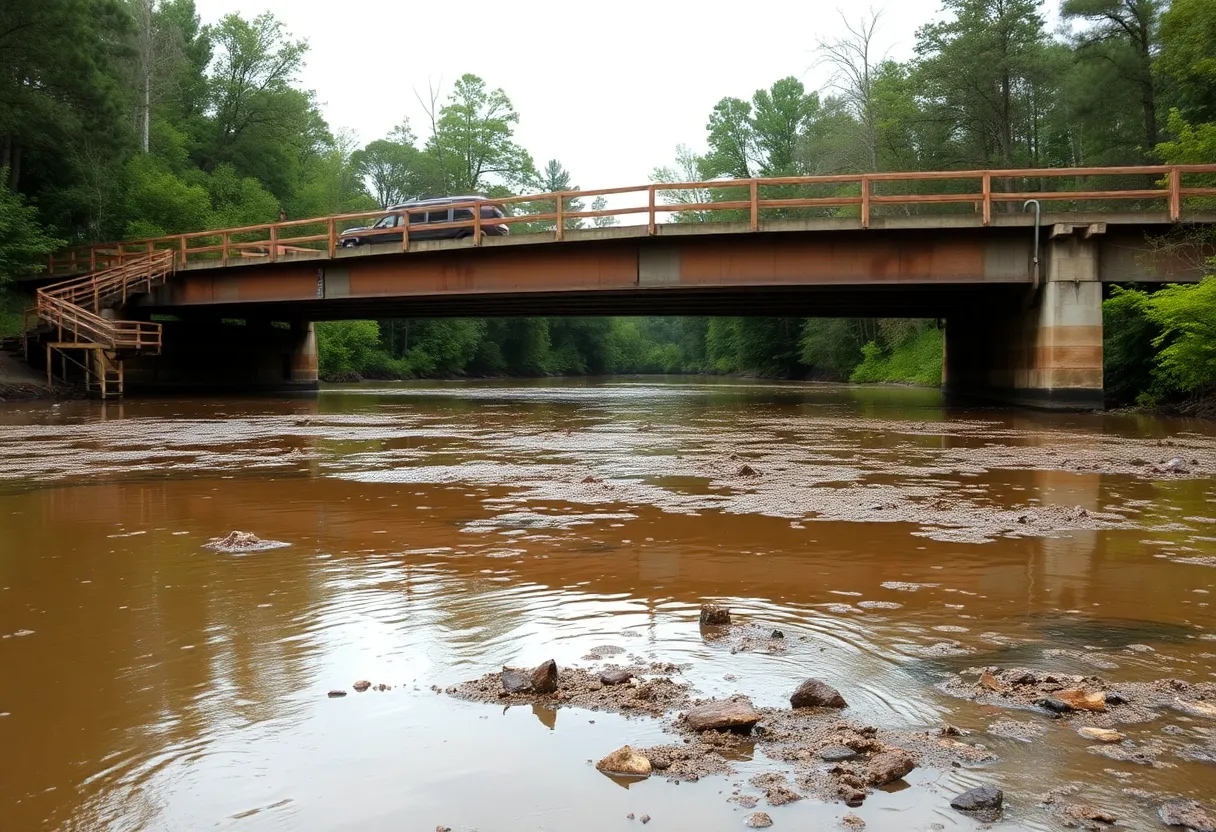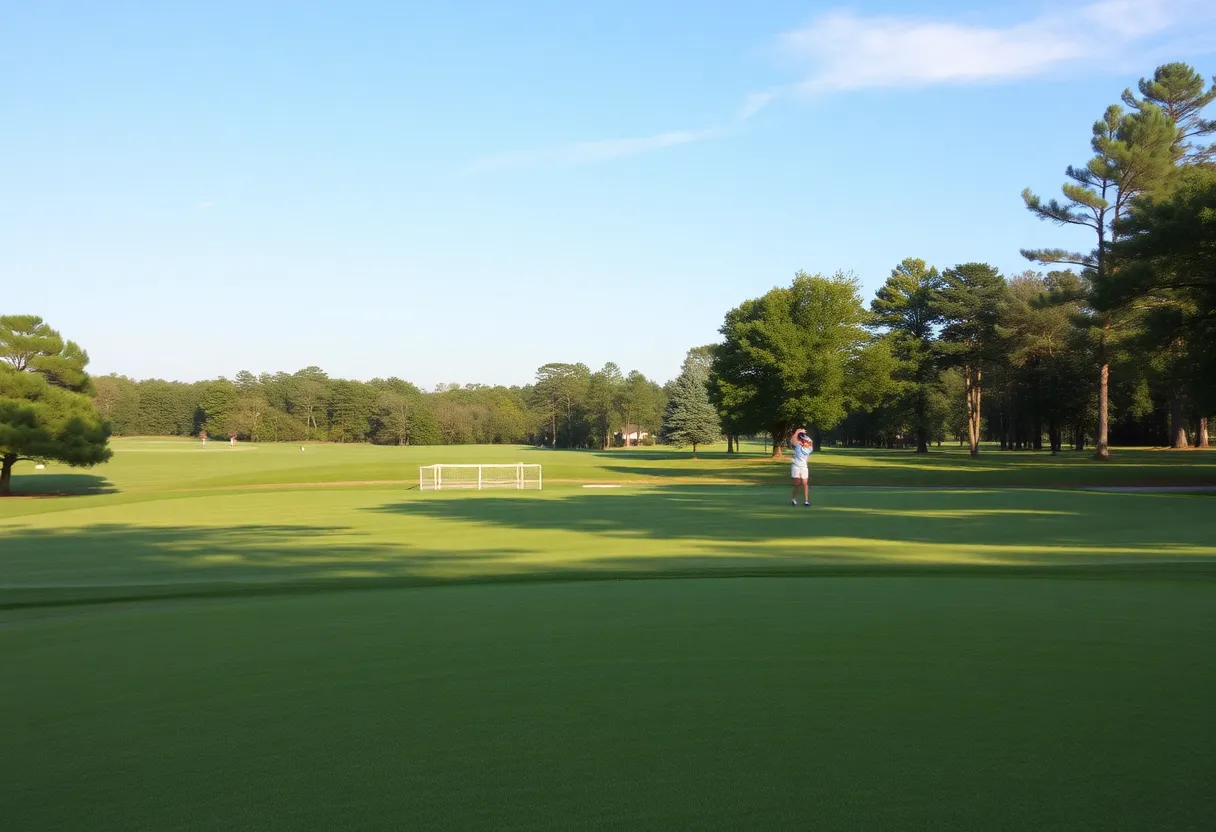News Summary
New reports reveal that Columbia is grappling with over 1.1 million gallons of sewage spills in local rivers following recent hurricanes. These spills pose significant health risks to residents, especially as summer approaches. Local officials assure that drinking water remains safe, but urgent investment in sewer infrastructure is necessary to combat rising environmental concerns.
Columbia Faces Serious Sewage Spills in 2024
Columbia residents are in for a wake-up call as new reports indicate a staggering amount of sewage has been spilling into local rivers, following recent hurricanes. According to the latest Sewer Spill Report, over 1.1 million gallons of sewage have been introduced into the Lower Saluda, Lower Broad, and Congaree rivers just this year. That’s enough waste to fill several swimming pools!
The Impact of Hurricanes
Bill Stangler, a local riverkeeper, is sounding the alarm about these sewage spills, mentioning that the actual numbers might be even higher. Why? Well, identifying sewer spills during extreme weather events like hurricanes and floods can be quite tricky. Following the impacts of Hurricanes Debby and Helene, the City of Columbia saw a record-breaking number of spills—85 overflow incidents to be exact—accounting for just over one million gallons, making it the city with the highest number of spills in the area.
Columbia’s Assistant City Manager has explained that many of these overflow incidents are a result of stormwater infiltration. During heavy rains, floodwaters can seep into manholes and wastewater collection lines, diluting the sewage. Though this may sound reassuring, it still raises concerns since it leads to lower concentrations of bacteria compared to dry weather days, but it’s still not safe.
Health Risks for Residents
With summer around the corner, the last thing anyone wants is to swim in polluted waters. With sewage spills, there are significant health risks for anyone who comes into contact with the contaminated water, including infections, rashes, and gastrointestinal issues. Many local recreational users, such as tubers and swimmers, are now consistently checking water safety reports before heading into the rivers.
It’s worth mentioning that approximately half of Columbia’s drinking water comes from Lake Murray, while the other half is sourced from the Broad River canal. Unfortunately, spills are occurring downstream from both these sources, heightening the concern over water safety.
Monitoring and Safety Measures
Local river keepers are actively monitoring the bacteria levels in the waters to ensure public safety, especially as the temperatures rise. After recent storms, Columbia Water officials managed to respond to several sanitary sewer overflows, with the majority resolved early Wednesday morning. Luckily, the city assures residents that the water in their homes remains safe as it travels through a different system from the flood-affected areas.
Investing in Infrastructure
Stangler emphasizes the critical need for investment in sewer infrastructure. Upgrading and maintaining collection systems and wastewater treatment plants is urgent, especially in the face of extreme weather events that seem to be happening more frequently. These storms disrupt environmental conditions significantly, and Columbia must be prepared for future occurrences.
There is advice for parents too; Columbia Water officials recommend keeping children out of floodwater, which can be teeming with bacteria and debris. It’s all about ensuring safety while enjoying the beautiful waterways that the region has to offer.
Community at Risk
The reality of the situation in Columbia is concerning, to say the least. With over a million gallons of sewage spilling into local rivers, there is a pressing need for dialogue and action on water quality and infrastructure. It’s time for the community to come together in addressing these issues, not just for the immediate safety of residents but for the long-term health of the rivers we cherish.
As Columbia moves forward, keeping a close eye on water safety and investing in necessary infrastructure will be essential steps in protecting both public health and the local environment.
Deeper Dive: News & Info About This Topic
HERE Resources
Additional Resources
- WLTX: South Carolina Sewer Spill
- MSN: Riverkeeper Sewage Spills
- WISTV: Columbia Wastewater Overflows
- Columbia Missourian: Sewage Pipe Repairs
- Bay Journal: Sewage Systems and Rain

Author: STAFF HERE Chapin
CHAPIN STAFF WRITER The CHAPIN STAFF WRITER represents the experienced team at HEREchapin.com, your go-to source for actionable local news and information in Chapin, Lexington County, and beyond. Specializing in "news you can use," we cover essential topics like product reviews for personal and business needs, local business directories, politics, real estate trends, neighborhood insights, and state news affecting the area—with deep expertise drawn from years of dedicated reporting and strong community input, including local press releases and business updates. We deliver top reporting on high-value events such as the Chapin Christmas Parade, Fourth of July Celebration, and the Chapin Fall Festival. Our coverage extends to key organizations like the Chapin Chamber of Commerce and the Lexington School District One, plus leading businesses in retail and recreation that power the local economy such as Lake Murray Tourism and the Chapin Visitor Information. As part of the broader HERE network, including HEREaiken.com, HEREbeaufort.com, HEREchapin.com, HEREcharleston.com, HEREclinton.com, HEREcolumbia.com, HEREgeorgetown.com, HEREgreenwood.com, HEREgreenville.com, HEREhiltonhead.com, HEREirmo.com, HEREmyrtlebeach.com, HEREnewberry.com, HERErockhill.com, HEREspartanburg.com, HEREaustin.com, HEREcollegestation.com, HEREdallas.com, HEREhouston.com, and HEREsanantonio.com, we provide comprehensive, credible insights into South Carolina's dynamic landscape.





